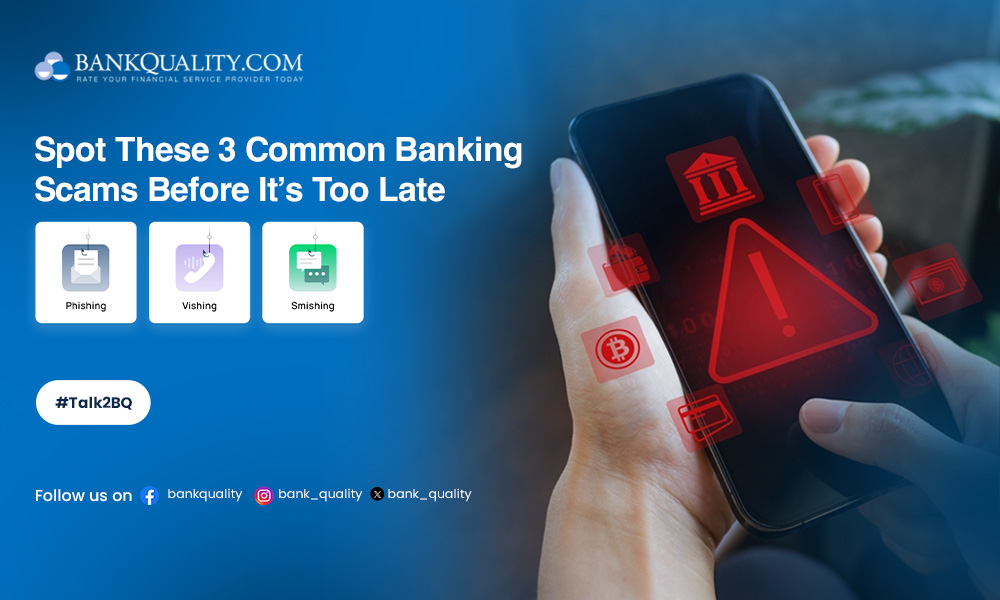
Banking scams are becoming increasingly complex and sophisticated, making it crucial to stay vigilant in safeguarding your money. Whether it’s your own finances or those of your loved ones, fraudsters are constantly evolving their tactics to exploit unsuspecting victims.
Thieves use fake e-mails and texts to your phone using dates reportedly sent from your bank.
They may ask for your personal information like passwords, PINs, or account numbers.
Recognising these red flags is crucial to prevent losing money or becoming a victim of fraud
Day by day, banking fraudsters are becoming more creative, using methods ranging from phishing emails to fake calls to steal your invaluable data. By staying aware of these scams, you can protect your hard-earned money from such malicious individuals.
1. Phishing scams: Emails that aren’t what they seem
Phishing scams are one of the most frequently occurring kinds of fraud today whereby fraudsters will ask you, supposedly on behalf of your bank, to follow some link and give them your login credentials and other sensitive information.
What to search for:
Unusual e-mail address: it does not match your bank domain.
It's in urgent language, pressuring you to act quickly.
Links that take you to sites similar to your bank's but aren't secure.
2. Smishing: The SMS scam
Smishing is a form of phishing that occurs through SMS. You may also get an SMS claiming that there's suspicious activity on your account and that you should click on the link or dial a number.
How to spot it:
Legitimate banks hardly ever ask for personal details via text.
Links in the message may appear suspicious or may redirect you to unknown sites.
The message might be grammatically or full of spelling mistakes, suggesting a scam.
3. Vishing: Voice call scams
Vishing is when fraudsters call your line, saying they are from your bank and then asking you to validate some personal details. They may invent some issues with your account and ask you to forward them some information with regard to your account details, PIN, or password over the phone.
Stay vigilant if:
The caller asks for your password or complete account number.
A call comes from an unknown or blocked number.
The caller threatens to report to credit agencies or threatens account closure unless payment is made.
Protect yourself: Practical tips
Verify the source: If you get a suspicious email, text, or call, always verify it by contacting your bank directly using official numbers, not the one provided by the potential scammer.
Don’t share personal info: Legitimate banks will never ask for your passwords, PIN, or full account number via email, text, or phone.
Be aware of red flags:Watch out for unusual links, email addresses, and urgent messages.
Indeed, banking scams are a serious threat, but by knowing the warning signs and security tips, your bank account will stay safe from fraud.